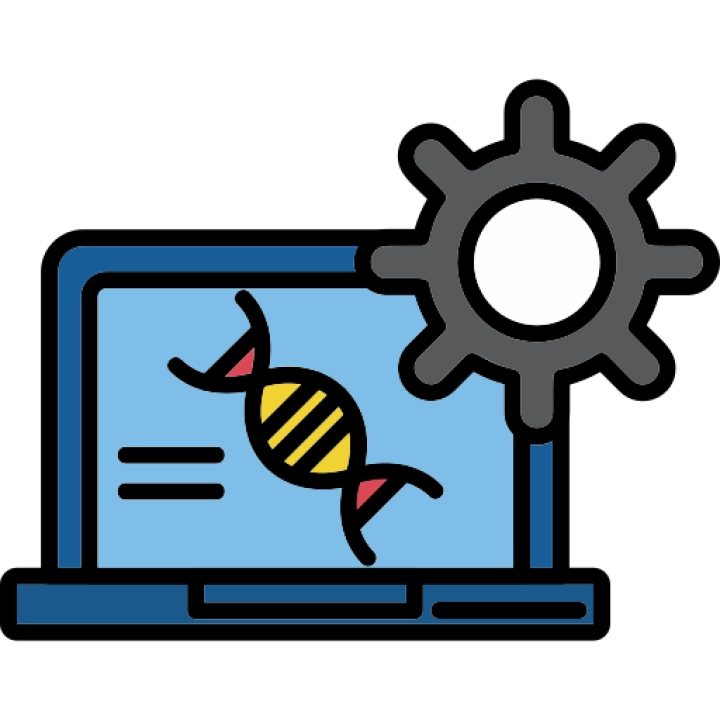Faculty: Graduate School of Science and Engineering
This interdisciplinary major combines biomedical engineering and bioinformatics with a focus on applying engineering principles and computational methods to solve biological and medical problems. Students explore key areas such as biomaterials, biomechanics, bio-devices, genomics, and data analysis. The program emphasizes technical skills, creative thinking, and the application of engineering and computational principles to advance healthcare and biological research. Graduates are prepared for careers in medical device development, biotechnology, pharmaceuticals, and research institutions.
Learning Objectives:
- Understand the fundamentals of biomedical engineering and bioinformatics.
- Develop skills in designing and developing medical devices and bio-devices.
- Learn techniques for biological data analysis and genomics.
- Explore the role of computational methods in biological research and healthcare.
- Understand regulatory standards, ethical considerations, and safety in biomedical engineering.
- Analyze challenges and opportunities in biomedical engineering and bioinformatics.
- Develop teamwork and problem-solving skills for interdisciplinary projects.
Main Curriculum:
- Introduction to Biomedical Engineering and Bioinformatics
- An overview of biomedical engineering and bioinformatics.
- Basics of engineering principles, biological systems, and computational methods.
- Biomaterials and Biomechanics
- Principles of biomaterials, including tissue engineering and biocompatibility.
- Techniques for analyzing biomechanical systems and designing biomedical devices.
- Bio-devices
- Fundamentals of bio-devices, including sensors, signal processing, and medical imaging.
- Techniques for designing and developing bio-devices for medical applications.
- Genomics and Bioinformatics
- Principles of genomics, including DNA sequencing, gene expression, and genetic analysis.
- Techniques for analyzing and interpreting genomic data using bioinformatics tools.
- Biological Data Analysis
- Methods for collecting, processing, and analyzing biological data.
- Techniques for applying statistical and computational methods to biological research.
- Medical Device Design
- Principles of medical device design, including regulatory requirements and safety standards.
- Techniques for prototyping and testing medical devices.
- Regulatory Standards and Ethical Considerations
- Understanding regulatory standards, ethical considerations, and best practices in biomedical engineering.
- Techniques for ensuring compliance with regulatory standards and promoting ethical practices.
- Emerging Trends in Biomedical Engineering and Bioinformatics
- Analysis of innovations such as personalized medicine, synthetic biology, and AI in healthcare.
- Techniques for adapting to new trends and technologies in the field.
- Capstone Project in Biomedical Engineering and Bioinformatics
- A practical project to apply acquired skills in designing medical devices, analyzing biological data, or developing bioinformatics tools.
- Techniques to provide comprehensive solutions to challenges in biomedical engineering and bioinformatics.
Assessment Methods:
- Projects on medical device design, genome analyses, biological data analysis reports, research papers, group projects, and internships.
Recommended Textbooks:
- "Principles of Biomedical Engineering" by Joseph D. Bronzino.
- "Bioinformatics: Sequence and Genome Analysis" by David W. Mount.
- "Introduction to Bioinformatics" by Arthur Lesk.
- "Medical Device Design" by Geoffrey W. Dobson.
Prerequisites:
Basic knowledge of biology, mathematics, engineering principles, and computational methods. Suitable for students in biomedical engineering, bioinformatics, biological sciences, and related fields.
Duration of the Major:
Typically 4 years to earn a bachelor's degree, including coursework, projects, and internships. Advanced degrees may take additional years.
Certification:
Graduates may earn a degree in Biomedical Engineering and Bioinformatics and pursue professional certifications such as Certified Biomedical Equipment Technician (CBET) or Certified Professional in Healthcare Information and Management Systems (CPHIMS).
Target Audience:
Ambitious biomedical engineers, bioinformaticians, medical device developers, and researchers seeking specialization in biomedical engineering, bioinformatics, and healthcare technology. This major equips students with the technical, analytical, and practical skills necessary to excel in biomedical engineering and bioinformatics, supporting advances in healthcare technology, biological research, and medical innovation.

